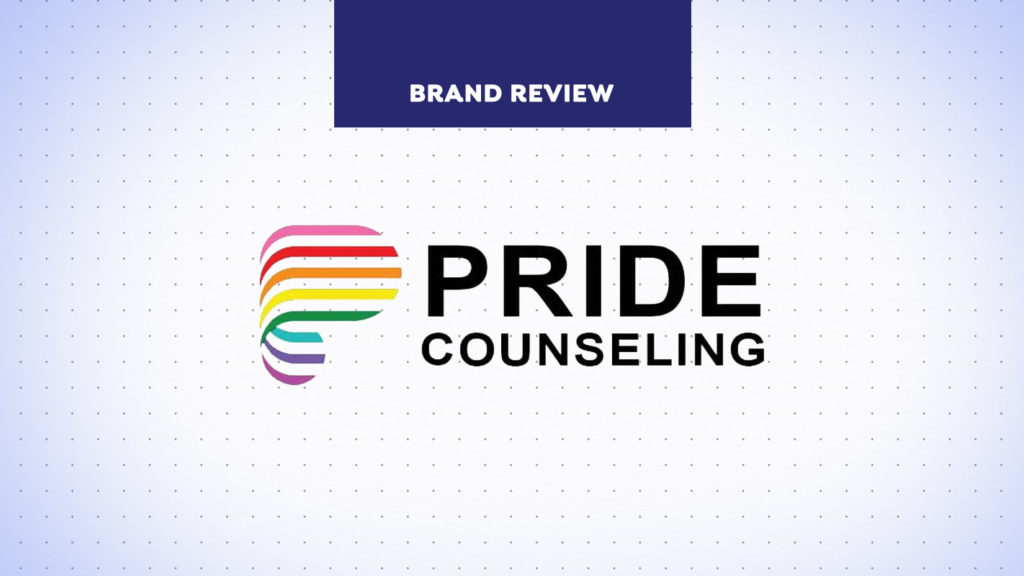
What to Know Before Choosing Online Therapy

Online therapy is a fantastic option for those who prefer counseling in the comfort of their own home or those with immobility. In some ways, online therapy offers broader alternatives compared to face-to-face treatment with a simple click. However, deciding what mental health treatment is best for you can be overwhelming. If you conduct your research, you may find factors revolving around online therapy that make it harder to make a conclusive decision. That’s why we’ve done that for you, so you can decide if choosing online therapy is right for you.
Find What You Need
How Does Online Therapy Work?
Before signing up, there are things to consider for yourself. Because all communication will rely on the internet, having a stable internet connection is key to preventing therapy sessions from interruptions. Online therapy utilizes communication via text, voice calling, and video chatting. Make sure that whichever route you decide you can rely on, such as making sure your microphone, webcam, or screen functions properly. Additionally, you will need to set aside durations of time and find a quiet space to hold your therapy sessions.
What to Look For in an Online Therapist
Depending on the therapist, each has a list of expertise in various areas of mental health. Some therapists are focused on treating symptoms of major depression, while others are versed in treating PTSD. Most sites or apps will have corresponding criteria and a therapist’s forte in various conditions to help you choose someone who understands your issues. Moreover, they will often have bios that contain their background in the mental health industry and how they can help you. Additionally, you should make sure that a therapist is licensed. A valid license protects you – depending on your state, is granted with its laws and rules, similar to a driver’s license. Lastly, you should check if your insurance is compatible with the service if you don’t want to pay out-of-pocket.
Certifications and Privacy
Therapists to be keen on are licensed professional counselors (LPC) who have a master’s degree in a psychology-related field, licensed clinical social workers (LCSW), licensed social workers (LSW), licensed professional clinical counselors (LPCC), licensed marriage and family therapists (LMFT), or licensed clinical psychologists (LCP). Privacy is a primary concern for those interested in online therapy. Thankfully, most platforms use HIPAA privacy rules, in which information between the patient and therapist is encrypted. However, hacks and leaks are tricky to avoid and are good to keep the possibility in mind. Most sites and apps that provide online therapy will provide forms, agreements, and privacy notices to keep users aware of their online safety. An additional measure to increase privacy protection is to find a private area to communicate with your therapist, such as your bedroom. Moreover, using headphones and a password-protected device that doesn’t use public Wi-Fi will secure your privacy.
How To Prepare for an Online Therapy Session
Preparing for an online therapy session is simpler than commuting to a therapist’s office. You should conduct your sessions in a quiet, private, and comfortable room that will make the session easier for you and your therapist. If you’re meeting with your therapist over the phone, a good pair of headphones with minimal white noise is acceptable. If you’re using video chatting, placing your device on a flat surface with natural lighting illuminating the room is most suitable. You may want to keep a notepad beside you to jot down notes or things you want to bring up during the session.
Extra Time to Prepare and Connect
Online therapy sessions can take up to an hour and a half and as little as 15-30 minutes. Thankfully, you have reign over how much time you want to spend with your therapist. In the mental health industry, time is unbelievably valuable – the more time spent during a session, the more money you spend. Additionally, you should test your internet connection before beginning the session. More often, however, the therapist will initiate the session with you. Getting used to the site or app interface beforehand is also helpful to avoid any confusion while interacting on the platform.
Find a Comfortable Private Space
Most people will opt for their bedroom when choosing a place for their therapy sessions. However, those who live alone find that an area such as their living room is most suitable. It is best to avoid places with loud noises and people. Because of the personal nature of a therapy session, it’s best to be in an isolated environment so nobody can eavesdrop or listen to something you’d rather keep between you and your therapist. Whichever location you choose, putting your comfort first is essential.
Block the Noise
Suppressing noise can be turning off your television, closing a window, or asking your family a couple of rooms down to be quiet. Doing so won’t only help your therapist to hear you, but it also blocks any unnecessary distractions. If you live with others, or if there are unavoidable noises in your home such as outside traffic or street noise, a fan or air purifier that generates white/pink noise can help increase your privacy and block unwanted sounds during your meeting.
Making the Connection
You can test your internet connection by visiting a few websites and observing your device’s speed and performance. If your internet connection isn’t acceptable, your device may not be close enough to your router, your home network needs rebooting, or your internet provider is having issues.
Come with Questions and Topics to Discuss
Before and after scheduling a therapy session, it’s good to practice what issues you’re willing to bring up and what you want to achieve. Because therapy’s purpose is to support you, creating a goal for each session and a list of things to bring up will make for a proactive time between you and your therapist. This preparedness and sense of purpose can lead to a feeling of accomplishment afterward.
How Do You Know If a Therapist Is Right for You?
Unfortunately, even if a therapist’s profile and criteria seem like a match made in heaven, the “sparks” and communication styles vary. Sometimes, patients will realize a therapist is compatible after meeting with them, while other times it may be clear that it isn’t a good fit. To ensure the best chance of making a connection with a therapist, take a look at their website or therapist profile on a website like PsychologyToday.com, which has tools to find therapists near you and filter according to specialty, gender, type of license, and the kind of insurance they accept. By selecting using these tools to learn about a therapist’s style, background, and specialties, you can hopefully make a connection more quickly and cut down on the time spent searching.
They Actually Listen to You
Therapists are known to be good listeners. Sometimes that’s all we need from them. Therapists keen on talk therapy often invite the patient to control the conversation while they listen.
You Feel Validated
One of a therapist’s primary roles is to allow their patients to feel validated no matter the circumstance. They’re willing to listen to any feelings, thoughts, or actions—no matter how they are perceived by other people. Moreover, a good therapist has an empathetic heart. They will encourage their patients to express themselves, lending a helpful and comforting ear.
They Want What’s Best for You
Your therapist wants you to be happy. During your sessions, they will feel you out and attempt to go about things in the best ways they feel will best support you. If you begin showing signs of healthy development through your sessions, your therapist will be proud of you and themselves for helping you through it.
They’re Clear Communicators
Although therapists can be good listeners, they also tend to give good advice or pointers that help you understand yourself more. Because a therapist is like an onlooker looking in, they see your life in a different, broader perspective that we need sometimes. When meeting with a potential therapist, check in with yourself to see if you feel understood, and if your therapist is responding to you in a way that is clear.
They Check In With You
Even when a session has ended, therapists will often check up on you and the strides you may have accomplished since the last time you met with them. Other times, therapists might follow up with their concerns, especially if a session is heavy-natured. Moreover, they may want to know that, aside from the topics you two talked about, you’re doing alright regardless.
They Take the Time to Educate Themselves
Like any other type of relationship, one or both parties will learn more as the relationship progresses. Regardless of where they are, most therapists have work on their minds in some way. Your sessions will resonate with them, and you may find that as treatment goes on, they will bring up revelations and occurring thoughts about you even when they weren’t working.
You View Them as an Ally
A good therapist is an ally. They are always on your side, even if this means they disagree with you on something. In the end, they want what’s best for you.
They Earn Your Trust
Because of the privacy measures regarding therapy, patient confidentiality ensures that your therapist keeps your life, identity, and everything else about you to themselves. The only thing a therapist has to disclose to other individuals is if they believe you are discussing things that represent a present threat to yourself or others. Your therapist will discuss these circumstances and situations with you as part of your initial paperwork.
When Should You End Therapy?
You can cancel therapy at any time. You may find that you don’t need it anymore, you can no longer pay, your insurance doesn’t provide for it, etc. If you are unable to afford your current therapist, they may be other therapists who accept your primary form of insurance. Additionally, some therapists offer a sliding scale system for clients who pay out of pocket, meaning that clients can pay a little more or a little less depending on their financial situation. However, if your current therapeutic relationship isn’t working out, or you and your therapist determine you have reached your goals, you can simply end treatment at any time. Most therapists will not require you to sign any contract or commitment to a certain number of sessions.
What Happens to My Information When I End Therapy?
The Department of Health and Human Services strictly regulates how therapist have to handle private information. HIPAA requirements ensure that your health records and personal medical information are protected by law. Also, per the American Psychology Association, privacy and confidentiality are an essential component of a therapist’s code of ethics. Your personal information and sensitive data are private even after you cancel therapy.
Summary
An important process in deciding if in-person therapy or online therapy is more suitable for you is experiencing both for yourself. If you’d rather see someone in-person but want to give online therapy a shot, the best suggestion is to opt for video calling sessions where you can see the therapist through your screen. Online therapy is also a very valuable option for those with mobility issues or a lack of reliable transportation. If the digital boundaries of the screen still cause a problem for you, seeing someone in-person might be the better option. Speaking to your primary healthcare provider will help you pinpoint where to begin.
Content on this site is for reference and information purposes only. Do not rely solely on this content, as it is not a substitute for advice from a licensed healthcare professional. Aging.com assumes no liability for inaccuracies. Consult with your doctor before beginning any medications or programs.



